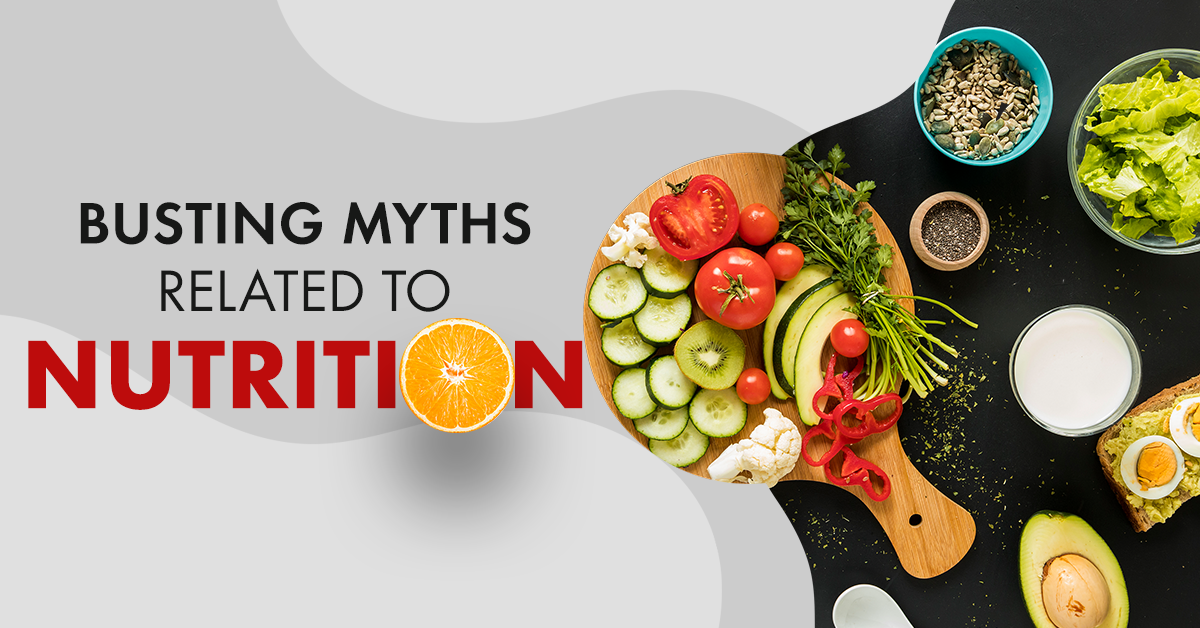Healthy eating is often surrounded by misconceptions that can make it seem complicated or even unattainable. Misinformation spreads quickly, leaving many people confused about what it really means to eat well. To help you navigate the noise, here are 10 common myths about healthy eating—and the truth behind them.

1. Myth: Carbs Are the Enemy
The Truth:
Carbohydrates have been unfairly demonized in recent years. While refined carbs like white bread and sugary snacks can lead to weight gain and energy crashes, complex carbs such as whole grains, fruits, and vegetables are essential for energy and overall health. These “good carbs” provide fiber, vitamins, and minerals that support digestion and keep you feeling full longer.
2. Myth: Eating Fat Makes You Fat
The Truth:
Dietary fat and body fat are not the same thing. Healthy fats, found in foods like avocados, nuts, seeds, and olive oil, are crucial for hormone production, brain function, and nutrient absorption. The key is to focus on unsaturated fats and avoid trans fats, which are harmful to heart health.
3. Myth: You Need to Avoid Gluten for Better Health
The Truth:
Unless you have celiac disease or a diagnosed gluten sensitivity, there’s no need to avoid gluten. Gluten-free products are not inherently healthier and may even lack essential nutrients like fiber and B vitamins. For most people, whole-grain options that contain gluten, such as whole wheat and barley, are nutritious and beneficial.
4. Myth: Organic Food Is Always Healthier
The Truth:
Organic foods are grown without synthetic pesticides and fertilizers, which can be better for the environment. However, organic does not automatically mean healthier. Nutritional content depends on the type of food rather than whether it’s grown organically. For example, a non-organic apple can be just as nutritious as an organic one.
5. Myth: Skipping Meals Helps You Lose Weight
The Truth:
Skipping meals can actually hinder weight loss by slowing your metabolism and leading to overeating later in the day. Regular, balanced meals help keep your energy levels stable and prevent unhealthy snacking. Breakfast, in particular, sets the tone for the day by kickstarting your metabolism.
6. Myth: All Calories Are Equal
The Truth:
While calories measure the energy content of food, the source of those calories matters significantly. For example, 100 calories from a donut and 100 calories from a handful of almonds have vastly different effects on your body. The latter provides essential nutrients, fiber, and sustained energy, while the former is likely to cause a quick sugar spike followed by a crash.
7. Myth: Fresh Produce Is Always Better Than Frozen
The Truth:
Frozen fruits and vegetables are often just as nutritious as fresh ones—and sometimes even more so. This is because they’re typically frozen at peak ripeness, preserving their nutrient content. Fresh produce, on the other hand, may lose some nutrients during transport and storage.
8. Myth: You Should Completely Cut Out Sugar
The Truth:
Sugar is often labeled as a villain, but not all sugar is created equal. Natural sugars found in fruits, vegetables, and dairy are accompanied by vitamins, minerals, and fiber. The real issue lies with added sugars found in processed foods and beverages. Moderation, rather than complete elimination, is key to a sustainable approach to healthy eating.
9. Myth: Eating Healthy Is Too Expensive
The Truth:
Healthy eating doesn’t have to break the bank. While some health foods and organic products can be pricey, many affordable staples—like beans, lentils, oats, and frozen vegetables—are highly nutritious. Planning meals, buying in bulk, and cooking at home can help you save money while maintaining a healthy diet.
10. Myth: You Need to Follow a Specific Diet to Be Healthy
The Truth:
There’s no one-size-fits-all approach to healthy eating. What works for one person may not work for another due to differences in lifestyle, cultural preferences, and individual health needs. Instead of following restrictive diets, focus on creating a balanced plate that includes a variety of whole, minimally processed foods.
Breaking Down the Barriers to Healthy Eating
These myths highlight the importance of seeking reliable information about nutrition. Healthy eating isn’t about perfection or adhering to rigid rules—it’s about making informed, sustainable choices that suit your unique needs and goals. By separating fact from fiction, you can build a healthier, more enjoyable relationship with food.
